
COLLAPSING INTO THE FUTURE'S ARMS
IDEOLOGICAL MIGRATION
AND THE WORK OF WEAVING EARTH
This feature article, written by Associate Director Sam Edmondson, was published in the beautiful Summer 2020 issue of Loam Magazine — titled Weaving New Worlds — which features contributions from many authors, including our friends/collaborators at Queer Nature and Justine Epstein, a member of our Executive Board. While the issue is currently sold out, please contact Loam and express interest in the physical edition so they know to print new copies — the issue is powerful and well worth having a copy in hand! This article is reposted here with permission.
I. OPENING WORDS
Let’s begin with the truth:
The biosphere is collapsing.
Humans are the cause.
It is already bad.
It will get worse.
We don’t know how much worse.
Take a breath.
Stay with me.
As painful and frightening as this truth might be, it is what it is.
—
TRUTH
noun
the true or actual state of a matter
—
The truth itself isn’t alarmist, though some who speak it will be branded that way. Neither is it aggressive, though the truth does feel that way sometimes, especially when I pretend it isn’t there. Between alarmism and denial is the sobering middle-ground: this collapse is happening.
The question that immediately comes to mind is: can I face it? But this question is inhospitable to my creativity. It is already shaped like “no.” So instead, I ask: how will we face it?
II. SITTING IN SYSTEMS
It’s an autumn dawn. The air is crisp and the broad leaves have already begun their annual migration from branch-tips to the ground below. I am walking from my house to a quiet place nearby — my sit spot. I go there for stillness, and to listen: to my thoughts, to the birds, to the seasonal creek that is still just a gentle passing. The soaking rains haven’t yet come.
I learned about the practice of sit spot at the Weaving Earth Center for Relational Education, first as a student and then as a teacher, though these roles are as fluid as the water in the creek. Today, I am the Associate Director, supporting our efforts to provide nature-based education for action at the confluence of ecological, social, and personal systems change.
Weaving Earth — which we often abbreviate as WE — was founded in 2012, guided by the question, “How do we educate for our times?”
One of our core beliefs is that humans can be beneficial participants within biological ecosystems. Much of humanity isn’t living up to that potential, but our purpose is to be a part of the movement that changes that.
There are precedents, thankfully. Many human communities have lived in balance with the earth, including the Southern Pomo, whose territory I am walking through on my way to the quiet place. Granted, this kind of balance has never been achieved by 7 billion-plus people. And yet that is the task at hand.
Let’s return to the truth and make an important addition:
The biosphere is collapsing.
Human systems are the cause.
—
SYSTEM
noun
a group of bodies under the influence of related forces
—
Systems shape who and how we are. Our individual actions, while important, are powerfully influenced by the ecologies and the human systems where we live — cultures, economies, and governance, for example. These complex, interconnected systems make some individual choices easier and others harder: we all face innumerable paths of lesser resistance (conformity) and paths of greater resistance (nonconformity). Where I reside, living in balance with the earth is a path of greater resistance.
It is easier to buy things than it is to tend, make or grow them.
It is easier to dispose of things than it is to conserve them.
It is easier to pollute the earth than it is to purify it.
By emphasizing systems over individuals, I am not denying individual responsibility or the capacity of individuals to effect systemic change. Instead, in the face of such enormous challenges, I am encouraging a shift in thinking from “I” to “we.”
I can’t fix this. Neither can you. But perhaps we can.
What we do matters. The bigger the we, the more it will matter. If we dream, demand, design and deliver healthier human systems, it will become far easier to make individual choices that reflect that health. The bottom line is that if we want to live, we have to fundamentally change the systems that shape the ways we are living.
Consider a houseplant that is suffering from root rot. The wilted and discolored leaves are symptoms of the problem, not the problem itself. Impending collapse is a root problem, so it demands systemic changes that are radical — ones that address root causes. Superficial and individual solutions to collapse won’t suffice.
Weaving Earth is a place where we put our hands in the earth and go searching for the roots.
III. FORGIVE US OUR TRESPASSES
On my walk to the quiet place, I turn right on the main road and walk downhill towards a vacant house, built where water pools. Someone is renovating the place, but I’ve never seen them. I notice only indirect signs of their presence. A ladder appears. Some tools that weren’t there the day before are on the porch.
I usually pause here. While I’ve passed some birds on my walk — robins in the fields, finches on the telephone wire, ravens cawing overhead — the woods and bushes near this house are teeming with birdlife. Over the years, sit spots have taught me that birds pay close attention to my movements and that other animals, further afield, are listening to the birds.
If my energy is big, the birds scatter — sometimes quite noisily — which sends an alarm throughout the area, dramatically decreasing my chances of seeing the deer, foxes, or skunks who also live here. If I am soft and slow, the birds remain without alarm. There is always an impact, but with care, I can have some influence over how much.
Picture the difference in ripples if I drop a rock in a pool of water versus placing it there, gently.
I endeavor to place myself here as gently as possible.
The quiet place is behind the house, a few hundred feet down an overgrown dirt road. Sometimes I go straight there, past the house and the 40-yard dumpster, the brick piles, and the random sinks. Other times, I pass the house, turn right and continue uphill on another paved road until I come to a low chain-link fence, which I cross as quietly as I can.
Either way, I am acutely aware of the moment I cross from public to private space.
This time, I choose the fence and spring myself up and over to the other side. My pulse quickens. My senses sharpen. I am paying attention in a different way.
—
trespass
verb
to enter the owner’s land or property without permission
—
“Back in the day, we didn’t own the land,” says Desirae Harp (she/her), a member of the Mishewal Wappo tribe from the central coast of California and a descendant of the Diné Nation from the Southwest. “We were just caretakers of the land. Sometimes people have a misconception about boundaries because they think that indigenous people own the land, but that’s not what it is. It’s just that when you’re coming into their space, you have to let them know that you’re coming in a good way. And that comes over a long period of time.”
My ancestors did not come to Turtle Island (North America) in a good way. They placed themselves here violently, in a colonial project that continues to this day, of which I am an ongoing beneficiary. Over hundreds of years, those indigenous people who weren’t killed were removed from their ancestral lands all across the country and assimilated into European-American culture by force. Don’t practice your ways. Don’t speak your language. Worship the Christian god.
Thankfully, despite the brutality of this campaign, many indigenous people are still here, striving to reclaim their wisdom, heritage, and autonomy. But today, as a direct result of attempted physical and cultural genocide, somebody “owns” the vacant house and the quiet place beyond where I trespass.
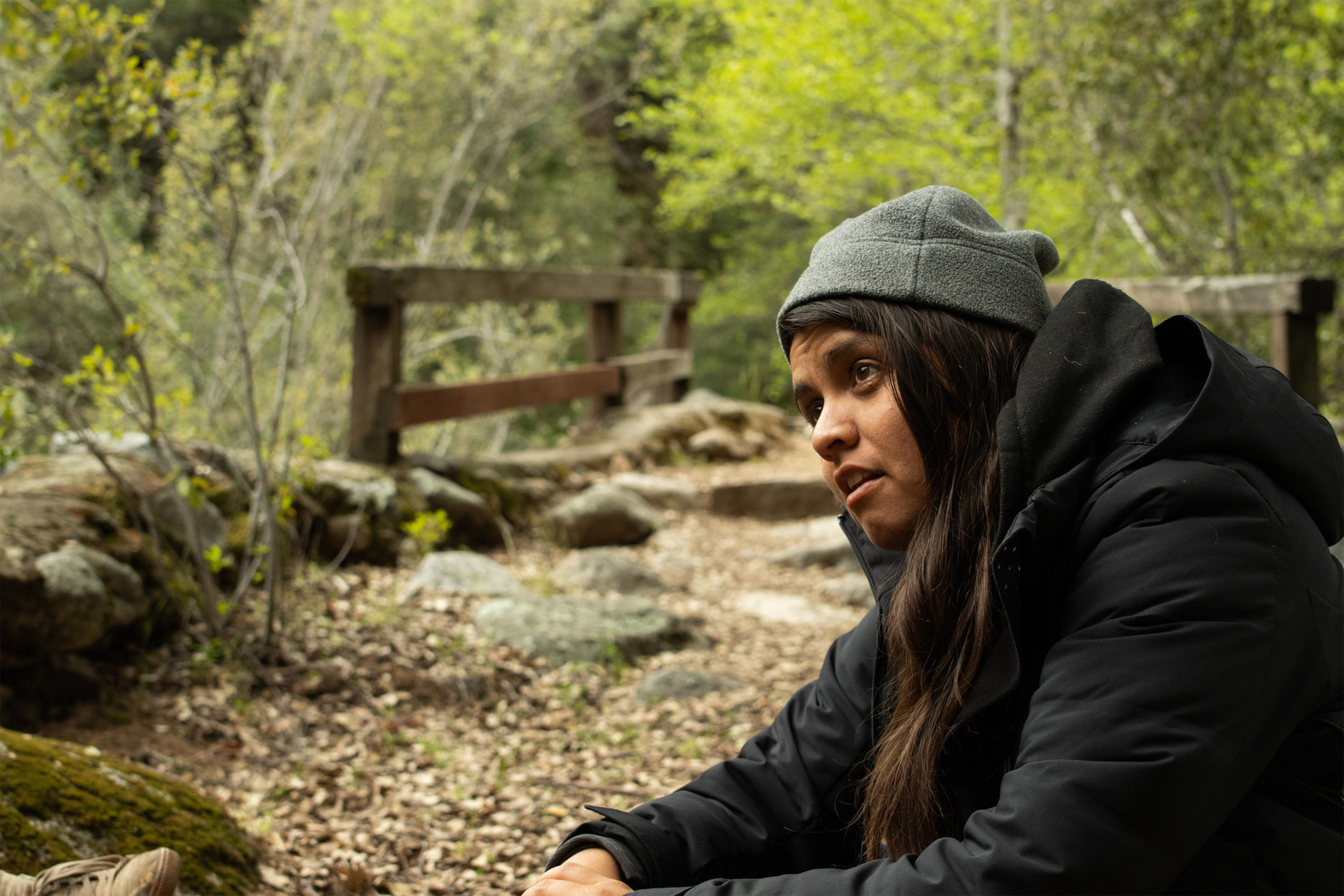
IV. FROM OWNED TO OWED
After hopping the fence, I walk through a small band of woods and step onto the overgrown road. There is a short, narrow path across from me that dips through low-growing blackberry and poison oak. I traverse it with a few steps and hop down into the quiet place.
I love the trees here, especially the black oaks and valley oaks. There are also big English walnuts and slender acacias growing by the creek — natural signs of the cultural history of this place. I sit with my back against a broad-trunked valley oak, whose branches curve and bow like wooden snakes. My view is of a small meadow of mostly annual grass, with some sedges mixed in. The creek is behind me and to my right. In the middle-ground, there is a wooden fence marking the property line and beyond that, a large pasture for sheep. Every time I come to sit here, I return home with new stories of the birds, the deer, the water, the wind. What other stories does this place have to tell?
“My definition of colonization is the erasing of stories,” says Desirae.
Desirae, who goes by Desi, is a graduate of the Weaving Earth Immersion, our core program for adults. The WE Immersion is a 10-month journey into the practices of Relational Education, an ever-evolving curriculum of skills that we believe are needed to make the journey to a just and livable future.
Telling stories is an essential ingredient of Relational Education. Sometimes, the stories are about experiences in nature. Through artful questioning, we draw the storyteller and the listeners into deeper curiosity about nature’s unending mysteries. Other times, the stories are more personal, relating to struggles and epiphanies. Often, the two are intertwined. The practice of sharing stories has a unique ability to create and deepen connections — between people and with nature.
“The WE Immersion gives people who haven’t had opportunities to share their stories to do so,” says Desi. “Going forward, it’s going to be increasingly important to hear the voices of those who have been unheard.”
Desi works with Run4Salmon, a prayerful journey led by Chief Caleen Sisk of the Winnemem Wintu Tribe to restore salmon runs, protect the waters, and preserve indigenous lifeways in and around Mt. Shasta.
“During the Run4Salmon prayer journey,” Desi says, “it’s an honor that we get to listen to Chief Caleen Sisk telling stories. The entire two-week journey that we are going up the river towards Mt. Shasta, we are following the path of the salmon. Chief Sisk is telling the stories of the water, she’s telling the stories of the salmon and she is also helping us to really embody those things when we become immersed in the prayer. Then we can fully understand how we’re connected to the water and how we’re connected to the salmon.”
Today, in the United States, the predominant way that people are connected to the land, culturally, is through ownership. I own this land. You own that land. The government owns that land. Many don’t own anything at all. This isn’t accidental — the origin story of this country is by-and-large a story of white men vying to own more and more land, control its resources, and wield the accompanying power.
—
own
verb
to possess; to have power, mastery or dominion over
—
One of the results of this system is fragmentation. Interconnected ecosystems are divided into parcels and sold off to the highest bidders, who more often than not aren’t communicating with their neighbors — even though nature’s forces and flows don’t usually abide by our human conceptual boundaries. The world is inherently interconnected, and yet many of us seem to have forgotten how to live that way ourselves.
Desi’s words about Run4Salmon tell a different story, one in which the land is understood through and appreciated for its interconnections. The river, filled with water by the snows from Mt. Shasta, is the artery within which salmon, a sustaining life force, swim to the ocean and back again. The stories and the prayers are reminders of the interdependence that exists between humans and the precious resources that sustain us.
—
owe
verb
to be indebted to as the cause or source of
—
“We need to be able to get reconnected with the Earth because the systems that are currently in place are not sustainable,” says Desi. “And so pretty soon there’s not going to be any water that’s running from our tap. And we’re going to have to learn where our water comes from. And maybe we’re not going to be able to turn on the heaters. So we’re going to have to learn how to build a fire. All of these skills at Weaving Earth that are helping us to reconnect with the Earth — these are going to be really important to pass on to future generations.”
V. THE GREAT MIGRATION AHEAD
Let’s again return to the truth:
The survival of human beings — the possibility of any future generations —
depends on the health of the biosphere.
The health of the biosphere does not depend, ultimately, on the survival of human beings.
We don’t own the earth. We owe our lives to the earth, and not the other way around.
Despite the self-evidence of these statements, there is a powerful countervailing force in western thought, which we believe is a root cause of collapse. It is typified by the words of James Watt, who invented the steam engine in 1757:
“Nature can be conquered, if we can but find her weak side.”
The conquest of nature certainly began before Watt, but it has accelerated rapidly since his era — accompanied by a dominator logic that has delivered us to the existential precipice we now face. A migration of staggering proportions is underway.
Ecologies are changing. An article published in 2017 in the journal Science noted that “although the geographical range limits of species are dynamic and fluctuate over time, climate change is impelling a universal redistribution of life on Earth.”1 [italics added]
Societies are changing. In his seminal paper “Deep Adaptation: A Map for Navigating Climate Tragedy,”2 Jem Bendell refers to projections from the World Bank, released in 2018, that “countries [need] to prepare for over 100 million internally displaced people due to the effects of climate change, in addition to millions of international refugees.”
The risks are unequally distributed. While many national economies continue to extract, burn and build at alarming rates, most people are caught up in huge and harmful social, political and economic systems that grind on and are hard to escape. The disenfranchised among us — indigenous people, people of color, queer and gender non-binary folx, women, the working class, the young, the old, the sick — are the most vulnerable. They have too little power and face too much risk.
Indeed, in 2019, Philip Alston, a UN Special Rapporteur on extreme poverty and human rights said:
Perversely, while people in poverty are responsible for just a fraction of global emissions, they will bear the brunt of climate change and have the least capacity to protect themselves. We risk a ‘climate apartheid’ scenario where the wealthy pay to escape overheating, hunger and conflict while the rest of the world is left to suffer…. As a full-blown crisis that threatens the human rights of vast numbers of people bears down, the usual piecemeal, issue-by-issue human rights methodology is woefully insufficient.3
Amidst the severity of this movement and vulnerability, I return to the question: how will we face it?
What emerges in response is that another kind of movement is called for: a migration of ideology.
—
ideology
noun
the body of doctrine, myth, and belief that guides an individual, social movement, institution, class, or large group
—
migrate
verb
to shift, as from one system, mode of operation, or enterprise to another
—
migration
noun
a number of persons or animals migrating together
—
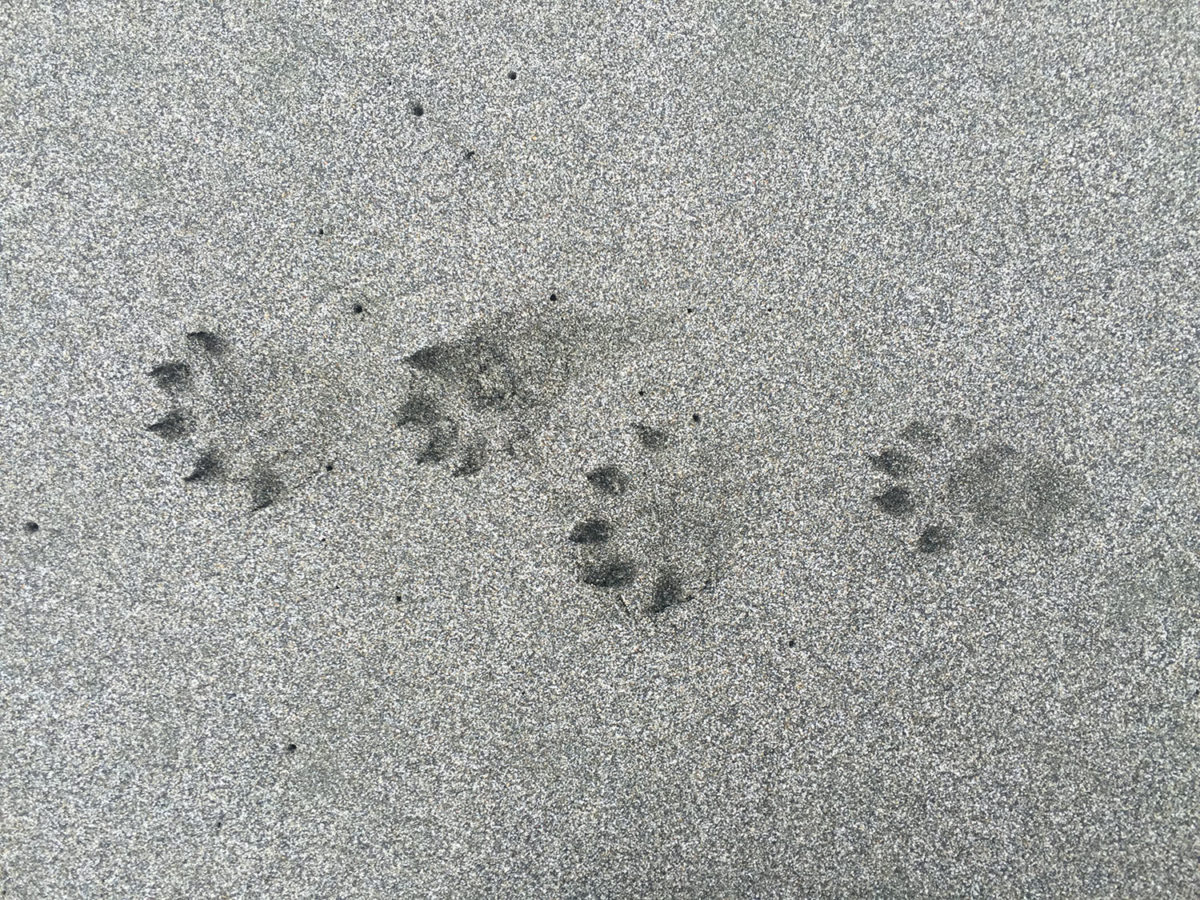
In response to climate chaos, many are focused on physical infrastructure solutions — we must transition to clean, renewable energy, for example. But without a massive ideological migration that changes our relational infrastructure, these practical solutions are destined to recapitulate business-as-usual — which at the moment looks like domination of the earth and exploitation of disenfranchised people.
Collapse is happening. The threats are real. And yet within this crisis, there is also the opportunity for a species-level ideological migration: from separation and domination to interdependence and belonging.
The biosphere is collapsing, due to the ill-logic of separation and domination.
therefore
The ideologies of separation and domination must collapse.
separation → interdependence
domination → belonging
“We are reflections of the earth,” says Desi.
She continues:
The way that we treat the earth is the way that we treat each other. When you are walking, you have to be aware of all of the life that you may be stepping on or displacing, just from being in that space. And I think that's the same thing for humans, because there has been so much trauma, there's been so much trauma to the land as well as to the people. You have to walk very gently. Indigenous people believe that even though it's only been proven that we can carry on historical trauma through our DNA, it's also true that we can carry ancestral wisdom through our DNA.
I chose to join the Weaving Earth Immersion because I felt like it would be a good opportunity for me to expand my community of people who are also interested in helping to protect the Earth. I know that it will take more than just one community to protect the Earth, so it's important to build that solidarity with different communities.
SKILLS FOR THE IDEOLOGICAL MIGRATION
walk gently
build solidarity
(1) Pecl, Gretta T, et al. “Biodiversity Redistribution Under Climate Change: Impacts on Ecosystems and Human Well-Being.” Science, vol. 355, issue 6332, 31 Mar 2017.
(2) Bendell, Jem. “Deep Adaptation: A Map for Navigating ClimateTragedy.”
(3) United Nations Human Rights Office of the High Commissioner. “UN Expert Condemns Failure to Address Impact of Climate Change on Poverty.” OHCHR Press Release, 25 June 2019.
VI. SUPREMACY CULTURE
It is another autumn dawn. I am walking to the quiet place. When I reach the vacant house, I walk beside it, past the dumpster and bricks and sinks, towards the overgrown road. The rains have come, and the fallen leaves are soft with water. My eyes are up, softly focused on the land around me, and I am listening to the morning as I walk, slowly, thoughtful with every step.
As the meadow comes into view, ringed by valley oaks, black oaks, and walnut trees, I notice the tawny silhouette of a buck, lying in the grass. He is facing away from me, painted by a shaft of morning light that is filtering through the trees. I get lower to the ground, making myself harder to see, in case he turns around.
I watch him for a long time before leaving the way I came — grateful to bear witness to his rest, and to leave without disturbing him. At this moment, I am thankful for my time in the Weaving Earth Immersion, where every year I have learned a bit more about how to walk gently, and what is possible when I do.
The WE Immersion is a “school” for ideological migrants — a place for those who want intimacy with the Earth, a place for those who want justice, a place for those who dream of a future in which humans are beneficial nodes within the web of life. It is a place for those who want to act today, but who also know that the work takes time. It is a place of learning, and also unlearning.
When Weaving Earth started in 2012, we were very much focused on connecting our participants deeply to nature — and we still are. But over the past eight years, our conviction has grown with every passing year that equity and justice work is an essential — and non-negotiable — element of our work.
The seeds of this knowing, which inspired the formation of Weaving Earth, have been illuminated, watered and tended by so many — this includes our participants, who every year, through their curiosity, creativity and brilliance, expand our horizons and co-create / co-evolve the education. We are also deeply indebted to Paul Raphael, an Odawa elder and Peacemaker, Kaylynn Sullivan TwoTrees and Matt Kolan, both of the Leadership for Sustainability Graduate Program at UVM, and J. Miakoda Taylor of Fierce Allies. These evolutionaries have each had a profound impact on our work, helping us to draw critical connections between equity, justice, and earth intimacy.
Today, Weaving Earth is guided by twin insights:
1. Climate chaos is the result of human domination of the Earth
2. Climate chaos is inextricably linked to cultural systems that reproduce themselves
through separation and domination
As a shorthand, we refer to these interwoven cultural systems as supremacy culture, recognizing that each strand has specific dynamics. Supremacy culture in the U.S. includes extractivism (oppression of the Earth itself), ableism, ageism, anti-immigration, anti-Semitism, cis-heteropatriarchy, colonialism, fat-phobia, Islamophobia, nationalism, and white supremacy.
—
education
noun
the process of preparing oneself or others, through knowledge and experience, for life
—
Education shapes belief, perception, and experience, both through what is taught (content) and how it is taught (context). Mainstream U.S. institutions, including many schools and mass media, typically do not discuss, even superficially, how supremacy culture shapes behavior, power, and opportunity. Because of this, these dominant sources of education primarily prepare students to participate in the world “as is” — we are taught that we can change our individual positions within the social matrix if we work hard enough, but we aren’t typically taught that the social matrix itself is corrupt and inequitable, built and running on the values of separation and domination.
Supremacy culture is systemic and pervasive — we can’t choose whether to participate. But we can choose how to participate, which is key to systems change. Education can be a tool of liberation.
Given this, Weaving Earth believes that education today must critically engage inherited stories of separation and domination, and at the same time responsibly recollect a deeper human inheritance: stories of interrelationship, belonging, dignity and respect. From this orientation, the conditions for real systems-change begin to emerge.
The root of “educate” is ēdūcere, which means “to draw out.” Guided by nature, we endeavor to draw out the vital contributions we each have to make to the great work before us.
VII. IMMERSION
Lauren Hage (she / her) is Weaving Earth’s Executive Director and a member of the WE Immersion Teaching Team. “We have three goals in the WE Immersion,” she says.
Number one — we immerse our participants in nature-based experiences that are designed to remind us of our interrelationship to all of life.
Number two — we actively educate participants on how to more effectively interrupt unjust social systems and ideologies, the interwoven strands of supremacy culture, which are the driving force behind climate chaos. This looks different depending on a person’s social position. For example, white participants spend time every session investigating whiteness, white supremacy, and white fragility. Meanwhile, folx of color receive equity time in nature — to re-connect, to rest, and to deepen in earth intimacy skills.
Number three — we encourage and take actions that meet the imperative to care for both people and the planet.
brontë velez (they / them) participated in the Weaving Earth Immersion three years ago and is now a part of the WE Immersion teaching team, an intercultural group of mentors and educators. “I think one of the most powerful influences that happened for me through Weaving Earth was deepening my relationship to curiosity,” says brontë.
They continue:
In relation to predominant modes of power — white supremacy and the culture that surrounds it, for example — there hasn't been room for me to be in question because that's so risky. My whole life, I've had to have things figured out … to know what I'm talking about and know what I'm doing. I have to have it all clear for there to be room for me to be in mobility — cultural mobility, financial mobility, social mobility. I've never felt like there was room for me to be in question or even time, just time to be in that kind of questioning. One of the gifts of my time in the WE Immersion was to practice curiosity in a way that was really liberating. Curiosity with the land, intimacy with the land. There was nothing I had to prove, I was given the space to not-know and then be known by the land.

SKILLS FOR THE IDEOLOGICAL MIGRATION
not-know
live curiously
brontë says: “If I describe Weaving Earth to people, I know that the clearest way they may understand it is that we’re practicing ‘survival skills.’ But I’ve really appreciated the reframe of that as ‘earth intimacy’ skills. The reframe helped me to not feel scarcity, to not feel fear that I’m not going to be provided for. I feel grounded in the trust that if I’ve been in a relationship with a place, the place will provide for me because I’ve been providing for the place. That is why I feel safe now.”
VIII. BEYOND EXTRACTION
The WE Immersion is a place where people come together to co-evolve and co-create in human-to-human-to-nature relationships. It is a place of praxis.
—
praxis
noun
practical application of a theory
—
Our theory is that the quality of our relationships matters. The health of any system — ecological, social, economic or otherwise — is defined by the relationships between the elements that make it up. By-and-large, as we’ve already referenced, modern industrial societies are complex systems characterized by extractive, and therefore unhealthy, relationships.
To borrow the words of the poet and essayist Gary Snyder, extractive societies “spread their economic support system out far enough that they can afford to wreck one ecosystem and keep moving on.” Snyder also said: “A society that treats its natural surroundings in a harsh and exploitative way will do the same to ‘other’ people. Nature and human ethics are not unconnected.”
Extractive societies and the supremacist ideologies that propel them are the reason the world and many of us who live in it are currently in a state of dis-ease. Extractive relationships disconnect and disembody.
—
extract
verb
to pull or take out forcefully
—
What is the opposite of an extractive relationship?
I am sitting at the quiet place with my back against the broad-trunked valley oak, listening to the birds. A flock of bushtits, accompanied by a ruby-crowned kinglet, is moving through the trees. To my left, I hear a familiar sound: “whit!”, whistled from near ground level. I shift my gaze without turning my head and see a hermit thrush standing on an oak branch that dips almost to the ground. The thrush flicks its wings and bobs its tail in a quick signature motion. I have grown to love this bird — not just the species, but this particular bird.
Many years ago, before I knew that hermit thrushes existed, a friend told me a story about wandering in nature that involved a hermit thrush. I asked him to describe the bird to me, which he did in vivid detail: slightly smaller than a robin, white eye ring, speckled belly, brown back, characteristic wing-flick/tail-bob.
The next week, I was wandering in a new place when a bird popped up from the ground and into view. I paused and observed. Sure enough, it was a hermit thrush, exactly as my friend had described! It was as if he had painted this bird into creation by stretching my awareness. Since that introduction, I have learned to recognize hermit thrushes wherever I go. And while the field marks don’t change, my relationship with each hermit thrush I meet does change. The environment is different, I am different, and each bird is different, with its own personality that reveals itself if I am willing to sit and observe. Our connection is renewed every time we meet.
The opposite of extractive relationships are introductive and regenerative relationships.
—
introduce
verb
to bring a person to first knowledge or experience of something
—
regenerate
verb
to revive or renew
—
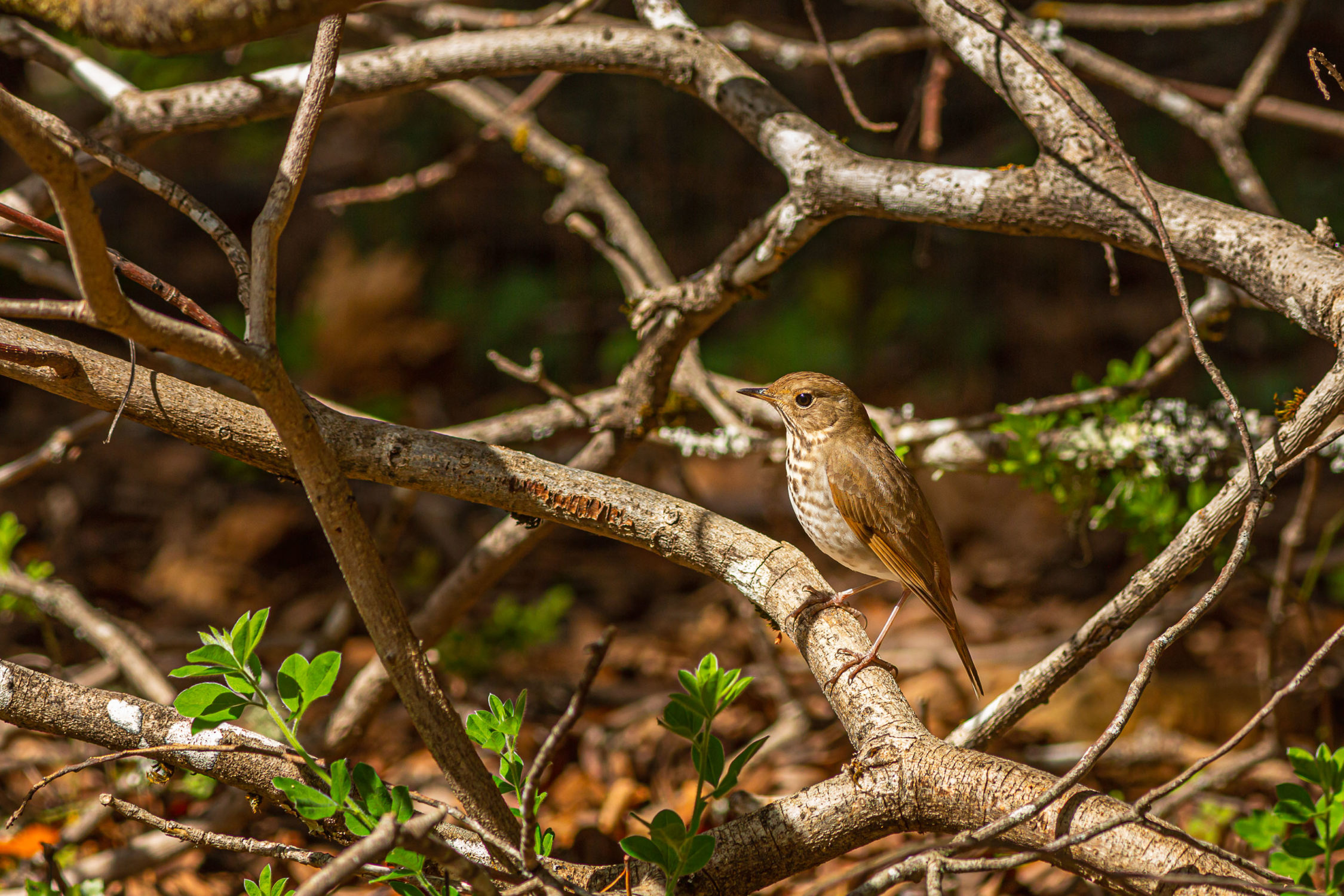
brontë says:
I heard Brene Brown speak about ‘minding the gap’ between where we are and where we want to be — what we aspire to and what we’re actually doing. Getting introduced to the birds, and now having that intimacy to be able to listen to the birds, has helped me fill that gap. Because I have noticed anywhere I am, I can connect now. If I go home to Atlanta, I can connect with bird language. My nervous system is at 10,000 right now being in Los Angeles, and it was so good to be on the balcony and then to see two hawks flying overhead. It was so helpful to be reminded ‘Oh yes, that's still going on.’ This relationship to the birds draws me into deeper attention and slows me down.
Introductive / regenerative relationships connect and embody. From this perspective, Relational Education is about making introductions, establishing healthy relationships, and offering the skills to revive and renew them.
SKILLS FOR THE IDEOLOGICAL MIGRATION
make introductions
prioritize regenerative relationships
IX. REPARATIONS
While writing this article, I saw an Instagram post from Rachel Cargle of a tweet written by LL McKinney. It said:
Saw a post that said Dystopia is a white people word for ‘What if all that shit happened TO US?’ and I feel seen.
Let’s again return to the truth:
The biosphere is collapsing.
Given the current state of things,
people of color are much more likely than white people
to face disproportionate harm and difficulty in the collapse.
This should make us all, especially white people, committed to changing that.
In 2017, Weaving Earth established a Reparations Fund to support BIPOC (black, indigenous, people of color) participants to attend the WE Immersion free of charge. We created this fund as an act of equity — U.S. capitalism was built through genocide and slavery and is maintained through white supremacy. Given this collective inheritance and its relationship to displacement and disconnection from the earth, we did not want to ask the targets of colonization and white supremacy to pay a white-founded organization for the reclamation of their connections to land, nature, and place. To do so would be business as usual within white supremacy.
The reparations aren’t just financial: each session, white participants and staff investigate white supremacy / white fragility while BIPOC participants and staff receive equity nature time.
Cliff Paulin (he / him) is a white, European-American, heterosexual, cis-gender man who graduated from the WE Immersion in 2019. “I learned that white supremacy is more than intentional actions of harm directed at people of color from a place of malice. It is a structural system that we live in, and that reframe has been really helpful for me when having conversations with other white people where race is either explicitly or implicitly brought up,” he says.
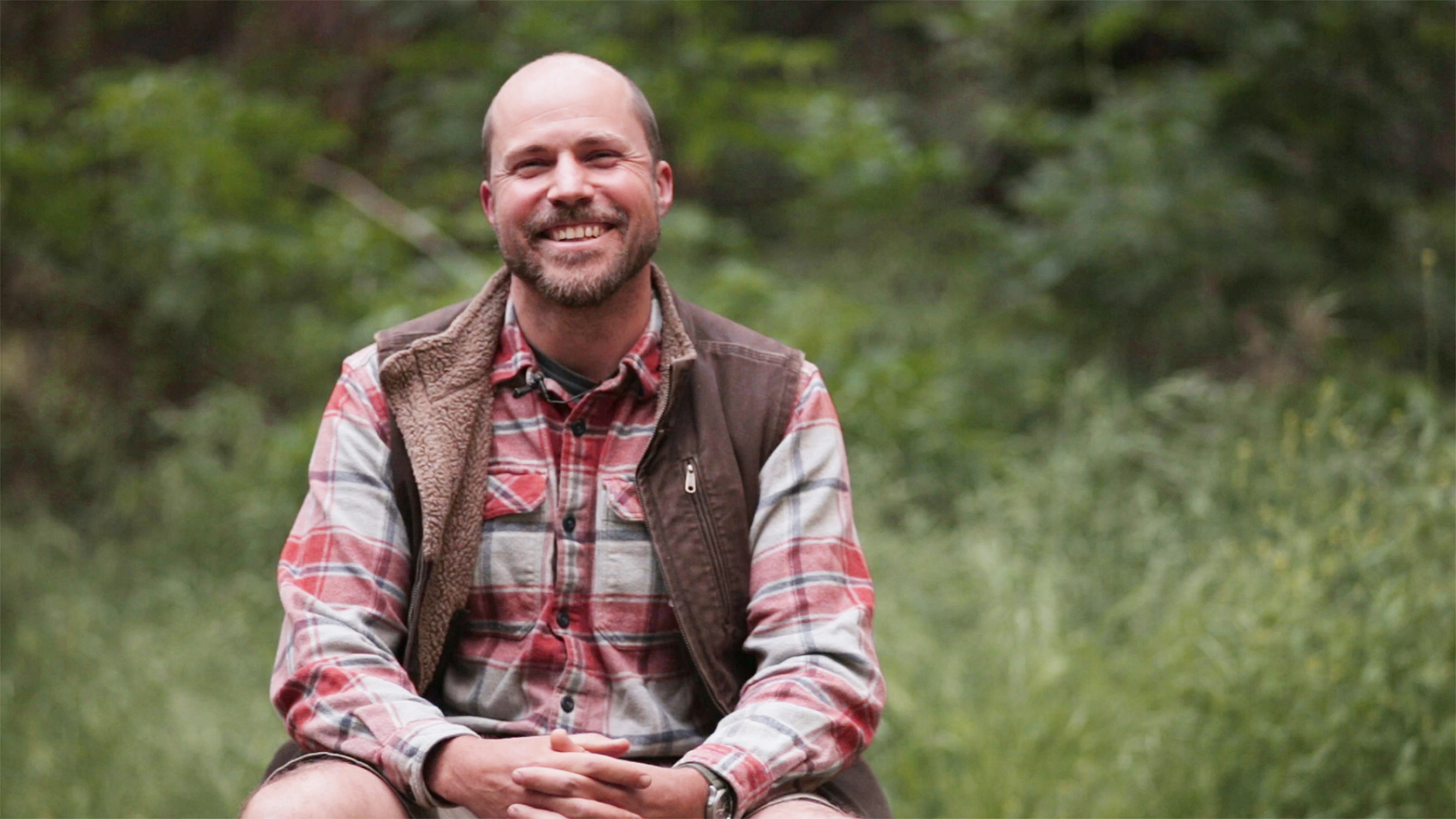
White supremacy acts like a veil over the senses of white people — it maintains power through its invisibility to the very people who are invested with power because of it. The work for white people begins with learning to see and to feel white supremacy and their whiteness — in other words, we establish an introductive relationship, and then build from there.
For BIPOC, white supremacy has well-documented, direct and indirect effects on physical and mental health as well as psychic and spiritual well-being. Equity nature time for BIPOC is focused on wellness, joy, rest, and connection to the Earth. Together, this simultaneous, differentiated work represents interconnected parts of a holistic response to white supremacy.
“I’ve never been in a place where I received nature equity time,” says brontë. “That it was framed like that is really critical…
...I could tell people: ‘Yeah, the white people were in there talking and disentangling themselves from white supremacy, where they needed to be.’ And then me getting to go with these other folks of color and be in the land and just do whatever I wanted to do — rest, whatever — what a helpful thing. That was very, very deep.
Cliff says: “Throughout the year, having the opportunity to sit in a non-BIPOC cohort allowed me to explore and make mistakes without harming people of color…
...Then, I was able to go back to a mixed-race space with some of those insights. That learning was really critical. I think more than anything, I discovered how much I didn't know about myself and my conditioning around race and how much my life has been structured by others and by myself to insulate me from that reality. The pattern of racial segregation that exists in this country is not by accident, and the design of it serves to perpetuate those racial dynamics.
He continues:
I'd say this process, for the most part, was deeply uncomfortable, as it should be. Doing the work in a nature-based context provided a nervous system regulation that was necessary to stay present without getting overwhelmed and shutting down.
“I can’t even believe that people are trying to do this work in buildings,” says brontë. “To me the earth offers support by providing a story that’s much deeper than colonialism and genocide and white supremacy.”
SKILLS FOR THE IDEOLOGICAL MIGRATION
connect with nature
practice psychic resilience
enact reparations
brontë says: “If I describe Weaving Earth to people, I know that the clearest way they may understand it is that we’re practicing ‘survival skills.’ But I’ve really appreciated the reframe of that as ‘earth intimacy’ skills. The reframe helped me to not feel scarcity, to not feel fear that I’m not going to be provided for. I feel grounded in the trust that if I’ve been in a relationship with a place, the place will provide for me because I’ve been providing for the place. That is why I feel safe now.”
X. DISCOMFORT
I love the quiet place so much that I decide to spend a full 24 hours there every month. During one of these trips, I endeavor to make myself a shelter — I didn’t bring my sleeping bag.
As I am gathering leaves, I notice many small spiders scampering around in the places I’ve uncovered. There are dozens of them — disturbed from their daily movement by mine. I decide I don’t need the shelter. How many spiders would I disturb if I built it?
Later, as the sun is hanging low in the sky, I gather dry, standing dead grass and stuff it in my clothes to stay warm. I sit through the night with my back against the valley oak. It is cold, but I feel alive. In the dawning, the sky is thick with ominous clouds. The transition from night to day is slow and subtle — the familiar features of the quiet place get brighter, gradually. In the distance, I see flashes of lightning. I feel small and vulnerable, which brings to mind the spiders from the day before.
The storm never reaches me, aside from a few rain drops. Later, after telling this story to some close friends, as is my practice with significant experiences, one of them drew a parallel between how I spared the spiders and how the rains spared me. Reciprocity.
—
relinquish
verb
to let go; release
—
Relinquishment “involves people and communities letting go of certain assets, behaviors and beliefs where retaining them could make matters worse. Examples include withdrawing from coastlines, shutting down vulnerable industrial facilities, or giving up expectations for certain types of consumption.”4
This will cause discomfort, as going without shelter for a night did for me. But perhaps giving up things today — for the sake of the planet upon which we all depend — will make way for receiving unimaginable things tomorrow.
SKILLS FOR THE IDEOLOGICAL MIGRATION
deepen the capacity for discomfort
let go
(4) Bendell, Jem. “Deep Adaptation: A Map for Navigating ClimateTragedy.”
XI. FINDING TRUST IN THE UNCERTAINTY
The ideological migration — from separation and domination to interdepence and belonging — that we believe is essential for the times ahead involves unlearning our socialization into supremacy systems and deep disconnection from the earth. It also involves learning and re-membering: earth intimacy, social equity and responsibility, community and personal resilience. And because major ecological changes are already underway, it asks for adaptation, too.
—
adapt
verb
to adjust oneself to different conditions or environments
—
The ideological migration and adaptation is underway, at Weaving Earth and in many other places. As momentum for this shift builds, it is increasingly vital that we walk together, even as we each have our own personal navigation to do.
Desi says:
The most powerful experience at the WE Immersion for me was when we were walking towards the sound of a beating drum with our eyes covered. I couldn't see where I was stepping. Even though I was moving slowly, I had no idea where I was.
This was profound because it taught me how to trust. Even though somebody wasn't holding my hand, I knew that they were close enough that I was going to be okay. I thought, 'Don't be afraid of the unknown, you know?'
So it was preparing me for life because it was helping me to step into the unknown and overcome my fears. And it was teaching me not only how to trust that the people in the group are going to be there if I fall, but also to trust that I can manifest what I want into reality.
I was just trusting spirit during that moment. And I remember having this profound experience when I took off the bandana and looked up at the stars. In that moment, I was really opening up my heart to my ancestors. The stars were speaking to me, saying: 'It's okay, I got you.' I started crying hysterically, because we live in a world where it's so hard to trust. It's so hard to trust ourselves, it's so hard to trust each other. And it's even harder to trust spirit. And there in that moment, I had so much trust.
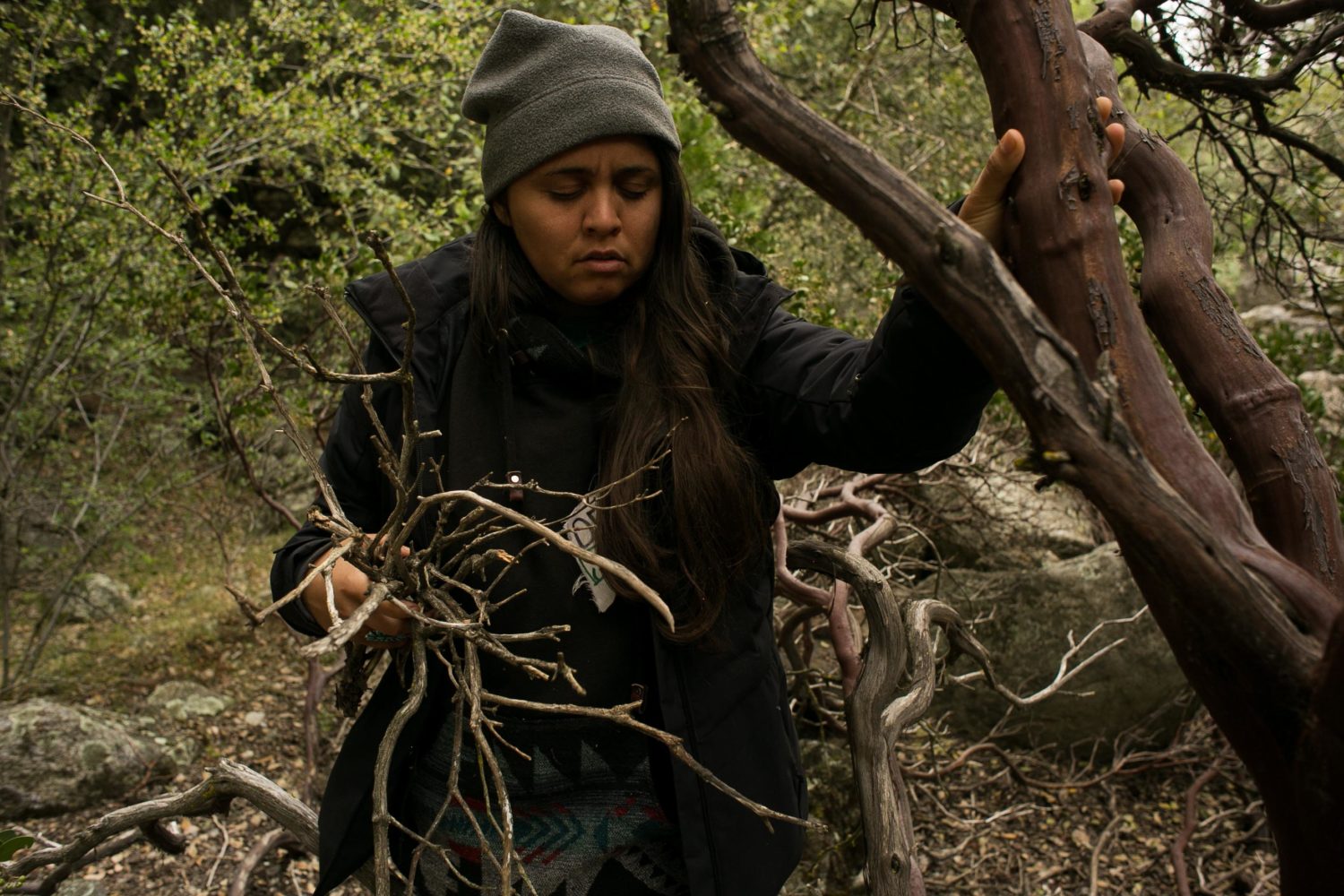
Desi’s walk is a metaphor for ideological migration — learning to walk without knowing where we’re going, to trust that others are nearby, that we can be agents of change, and that there may come a day when we remove the bandanas of our uncertain future and see the stars above and weep with gratitude, not only for the gifts of what got us there, but also because, at a time when the future of humanity is so uncertain, our efforts have made it a bit more likely that someday, we will be somebody’s ancestor.
From the downtown bustle of Los Angeles, brontë says: “It is helpful to de-center the projects of humanhood. When I can access that place, I actually feel drawn to this collapse.” “Of course,” they continue…
there are things that I feel scared about in terms of harms — disproportionate harm to people of color, queer folks, houseless folks, disabled folks in climate apartheid. Those are things I feel afraid of. But with that being said, I actually feel pretty jazzed about collapse. If it wasn't going to hurt people, it's kind of beautiful to imagine being able to see the stars here again.
SKILLS FOR THE IDEOLOGICAL MIGRATION
unlearn
re-member
expect uncertainty
imagine anyway
adapt
CLOSING PRAYER
Nature is replete with astonishing migrations:
salmon
:::
who leave their riverine homes for the ocean,
returning years later to give life and die in the waters where they were born
birds
:::
who navigate thousands of miles by sun, stars, and magnetic fields,
before returning to the homes where they were born
humans
:::
who grew apart from nature,
but learned to live again as a part of the magnificent whole

